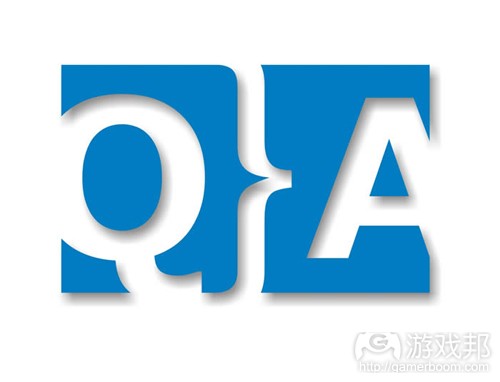QA是否能成为游戏开发者的职业目标?
作者:Tulay Tetiker McNally
喜剧演员Chris Rock在一出单口喜剧中讲述了一名青少年在Red Lobster餐馆的后院刷碗碟的故事。这一次他也描述了职业与工作之间的区别:“当你获得了一份职业,你在白天便没有时间去做其它事。但是当你得到的是一份工作时,你就拥有较多的时间。”
我希望QA成为一种职业目标,即人们想要将其当成一个特定的学科(而不只是简单的涉及),从业人员可以在此成长与进步—-不只是在BioWare。
“任何人的知识都不可能超越他的经验。”——John Locke
拥有更多知识渊博的员工能够创造出更加高产且成熟的组织。而为了留住他们的知识并保持长期的获利,你需要确保较低的人员流失率并提高生产力。
这时候任期便是问题所在,特别是对于像QA这样的学科,即我们必须与开发伙伴建立起彼此信任且长久的合作关系。维持对于工具,游戏机制,团队合作以及IP的了解至关重要。我便很幸运地就职于一家能够提供给我这种机遇的公司工作。
在BioWare,我惊讶地发现有很多员工已经在公司待了15年以上的时间了。单在QA部门就有2名员工拥有13年之久的工龄。值得一提的还有,BioWare中许多开发人员(如设计,设计,社区,制作等等学科)都是出自QA部门。
而这便在公司中培养了一种文化,即所有员工都会对项目质量负责——因为之前的“QA经历”让他们能够更轻松地与其他部门的成员展开合作。
他们便成为了我们学科的“布道者”,而我们也需要确保通过QA去提高所提供内容的高质量。
比起外部动机,获得内部动机的人总是能够更有效且更坚定地执行任务。但是你也必须确保这两种动机的平衡,因为大多数人都是受到两种动机的推动。这便引出了薪资话题,即这便是外部动机。
这并不是多大的商业机密,即在许多情况下测试行业的工资总是低于游戏开发中的其它工作。但是当我们着眼于软件开发时会发现,软件测试者拥有较高的薪资报酬。可是为什么在游戏产业中会是这样的情况?
再次回到我们的工作室文化中——在我们的工作室中,每位开发者都是平等的,因此QA员工的薪资也是公平且具有竞争性的。如此便会推动其它部门的人才转向QA(游戏邦注:如果这是他们的职业目标的话)。
在BioWare定义QA职业方向时,我认为为QA部门创造任务和愿景声明是首要任务。
我们在BioWare的QA任务是“提供精确,实在,相关且即时的信息去支持开发者做出有关产品的最佳战术和策略决策;降低并评估可能影响终端用户的风险;同时支持开发者创造出最有趣的受故事驱动游戏。”
说得明白点便是,QA是开发过程中不可分割的组成部分,其秘密武器便是提供必要的信息去支持开发者做出明智的决策——自始自终。
对于我来说,为我们的QA明确任务和愿景声明是件非常重要的任务,这能够帮助团队更好地理解我们的目标和方向,以及公司文化的所坚持的原则。
在BioWare的QA部门,我们拥有“双向职业道路”。即管理道路(QA经理)和技术/专业道路(QA分析者),而成员们可以根据自己的技能和职业兴趣从中挑选最合适的职业目标。
我们的成员觉得没有必要成为管理者,因为这并不是唯一能够推动他们发展或赚钱的方法。而他们之所以选择管理者也是因为他们想要领导别人。既然在游戏中设有高级设计师,为什么不设置一个高级QA分析师呢(如果他们真的想要进行测试的话)?
创造高绩效部门的下一步便是定义每一个角色的期望值。在艺电,我们将专业才能参数作为职业框架的一部分。它们能够定义员工对于代码职责的熟练度和对与工作相关的特定技能与知识的掌握。
为了支持双向职业道路以及我们在BioWare的RPG-QA过程,我们必须写下自己的才能参数。我们知道职业上的成功并不只是关于你做了什么(应用你的技术知识),同时还涉及了你是如何实现这些目标(交流,解决问题和协作等等)。
但是在大多数工作室的QA中,情况却不是如此。所以说我很幸运的能在不同的环境中成长。
在来到BioWare的第一天,我便意识到自己是这一宝贵公司文化的组成部分,即他们专注于持续的完善,鼓励各个学科成员的发展,并平等地对待每一位员工,包括QA。
(本文为游戏邦/gamerboom.com编译,拒绝任何不保留版权的转载,如需转载请联系:游戏邦)
Part 2: Quality Assurance – a career destination in games? Why not!!?
by Tulay Tetiker McNally
Comedian Chris Rock has a great stand-up piece where he talks about working at Red Lobster as a teen, washing dishes in the back of the restaurant. At one point during his routine he describes the difference between a career and a job: “When you got a career, there ain’t enough time in the day. When you got a job, there’s too much time.”
I want QA to be a career destination; a discipline where people want to be (vs. seeing it just as a foot in the door) and where staff can grow and progress – and not only at BioWare.
“No man’s knowledge here can go beyond his experience” (John Locke)
Having more knowledgeable employees results in better productivity, experience and a mature organization. To preserve knowledge, and to be more profitable in the long-run, you need to minimize employee turn-over and maximize productivity.
This is when tenure becomes a problem, especially for disciplines like QA where it is so important to build trust and long-lasting relationships with your development partners. It can be crucial to carry on tribal knowledge about tools, game mechanics, team processes, and your IP’s. I am fortunate enough to work for a company that gives me the opportunity to do just that.
I find it quite impressive how many staff have been with BioWare for 15 or more years. In QA alone I have 2 employees with 13 years of experience each. I think it’s worth mentioning that at BioWare we have quite a large number of former QA staff who now work in development (design, art, community, production – almost every discipline).
One of the side-effects/benefits of this is that it encourages and fosters a culture of quality and shared responsibility for quality – because of what they have practiced in their “previous QA life” and that makes collaboration with other departments a lot easier.
They become evangelists for our discipline, in the same way we need to be evangelists for ourselves to help us make QA be truly appreciated for everything we have to offer.
When people are motivated intrinsically, they perform better and more consistently than when they are primarily motivated extrinsically. But you have to aim at keeping it in balance, since most people are motivated by a combination of both. This brings me to the topic of salary – an extrinsic motivation.
It is not a big industry secret that salaries in testing are in many cases not competitive with other jobs in games development. Not so when you look at software development – software testers can make a serious salary. So, why not in games?
I want to tie this back to our studio culture (more on this in Part 3 of the series), how every developer is equal in our studio; therefore our salaries in QA are also fair and competitive. This also opens up opportunities for talent from other departments to make the switch to QA if this is the career destination of their choice.
Before defining a QA career path at BioWare, I felt that creating a mission and vision statement for the QA Department should be the first thing to do.
Our BioWare QA Mission is “to provide accurate, concrete, relevant and timely information to support developers make the best tactical and strategic decisions about the product while reducing and assessing risks that may affect the end-user; supporting developers in creating the best story-driven games in the world.”
In plain English this means that QA, is an integral part of development, the secret sauce that is providing the necessary information to make the right decisions as we are developing a product, – from start to finish.
Defining a mission and vision statement for our QA was an important step for me in order to help my teams better understand where we are headed, what direction the department is taking and it summarizes the philosophy and beliefs of the organizational culture.
At BioWare QA, we now have a “Dual Career Path” that has a managerial path (QA Lead/Manager) and a technical/specialist path (QA Analyst), which lets staff choose an appropriate career goal for their personal development based on their skill-set and career interests.
Our staff doesn’t feel the need to become a manager, because it’s the only way for them to advance in their career or make more money. They become managers, because they want to lead. We have Senior Artists or Senior Designers in games, so why not Senior QA Analysts if testing is what they want to do?
The next step in the process of creating a high-performing department was to define the expectations in each of these roles. At EA we use Professional Competency Matrices as part of a career framework. They define the foundations for proficiency in conjunction with core duties and specific job-related skills and knowledge.
In support of the Dual-Career-Path and our BioWare RPG-QA processes, we felt the need to write our own Competency Matrix. We know that career success is not only about what you do (applying your technical knowledge) but also about how you go about achieving these goals (communication, problem solving, collaboration etc.).
In most studios when it comes to QA, this is not always a given. I grew up in a very different environment.
After my first day in the office, at BioWare I realised that I was part of a precious culture that focuses on continuous improvement, encourages discipline excellence, and that treats all their employees equally and fair, including QA.(source:gamasutra)








































 闽公网安备35020302001549号
闽公网安备35020302001549号